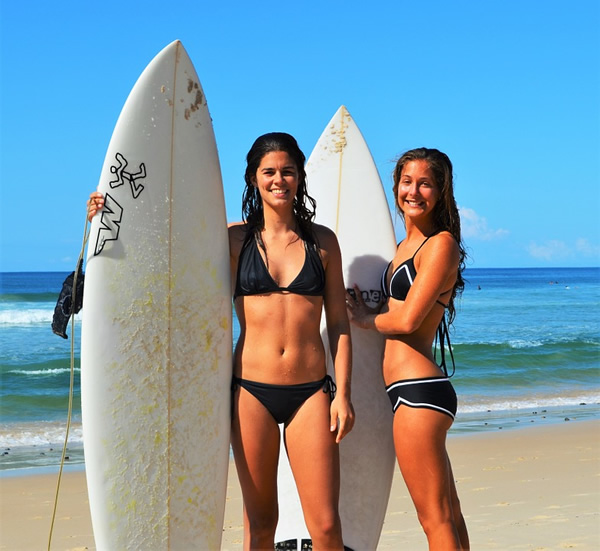Study Abroad and Living in Australia
A Practical Guide for Students Going to the Land "Down Under"
By Christian Thorkildsen

|
|
Much of life in Australia, for locals and foreigners, is about enjoying the land and sea.
|
Australia, with its warm climate, high education standards, and easygoing population, offers a smooth transition for foreign students. Here’s some practical advice that will make your experience unforgettable.
Preparation
The main preparation starts at your school’s international office. They’ll tell you about the study abroad opportunities available at your institution. The faculty advisor or the international office staff will
assist you in choosing the best place to go for your area of study.
Before making a final choice, ask the international office staff to give you email addresses of students already studying where you plan to go.
After singling out an institution, go to its website to find classes you need. Keep in mind that a “class” in the U.S. is called a “subject” in Australia and “course” means the area in
which you are studying.
Before Leaving
Make sure you have a valid passport and visa. To obtain a visa for Australia you need proof that you have the finances to cover tuition and expenses. Get in touch with your nearest Australian consulate to apply.
Make sure your medical insurance is in order. One of the visa requirements is Overseas Student Health Cover (OSHC) insurance and covers you for six months.
Research the weather of your region and bring appropriate clothing. Australia is generally a very casual country and dress codes aren’t very strict. However, you should bring formal clothing for possible formal
events.
Leave some empty space in your backpack or suitcase. Australia is generally cheaper than the U.S. and most students can’t fit everything they want to bring back into their luggage.
Bring your driver’s license. Renting a car is cheap and a great way to explore.
Once You Are There
Things may seem literally upside down when you arrive. You may leave the U.S. in winter and arrive in the midst of a hot Australian summer. People are driving on the left side of the road. Australians are speaking in a weird
slang. Crickey! It will take some adjustment to cope with it all.
It’s a good idea to allow yourself some time to get to know your destination before the semester starts. This also gives you extra time for the apartment hunt if you decide to live off campus.
Cell phones are even more widely used in Australia than in the U. S., and many students buy a cheap phone with a prepaid calling card. If you have a tri-band phone, you’ll be able to use your phone from the
U.S.
Cheap international phone cards for land lines are widely available at vendors and online. Australia can be as much as 16 hours ahead, depending on your location.
If you open a bank account in Australia and then wire money, you save yourself the fees of using a credit or debit card charging overseas rates.
As in the U.S., Australians passionately follow sports and take great national pride in them. An excellent way to get to know Australians and their culture is to join a sports team.
Make sure you don’t fall in the trap of hanging out only with other Americans during your semester abroad. It’s easy to do so because you have a lot in common, but you’re missing out on an opportunity
to get to know another culture through its people.
Remember, your institution normally transfers credit points that will count toward your degree, but grades normally don’t — as long as you pass (You didn’t hear it here.). And, while it’s important
to do your work, don’t forget to have a good time.
Make sure you put your time to good use in this fascinating country. A semester or a year may seem like a long time, but you’ll be amazed at how quickly it passes. “Seize the day” has never been
more relevant than when you’re on exchange. Many students find that leaving Australia only makes them want to return. So stay in touch with the people you meet — you might want to go back sooner than you think.
CHRISTIAN THORKILDSEN is a Norwegian journalism student at La Trobe University in Melbourne, Australia, who participated in an exchange.
|
